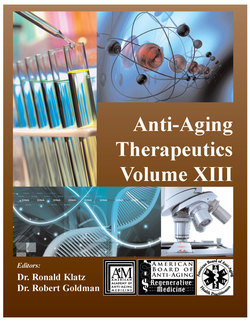Читать книгу Anti-Aging Therapeutics Volume XIII - A4M American Academy - Страница 63
На сайте Литреса книга снята с продажи.
CONCLUDING REMARKS
ОглавлениеTaken together, these studies indicate that:
•Emotional states are epigenetic – they regulate gene expression.
•Stress can produce large differences in telomere length by age 40.
•When emotional states are improved by the acquisition of stress-reduction skills, beneficial changes in gene expression are found.
•Stressful emotional states may be changed rapidly.
•The genes affected by emotional change are important to health and aging, governing such cellular functions as programmed regeneration, free radical scavenging, inflammation, and immune function.
The next generation of research is expected to identify a subset of genes most reliably associated with changes in emotional state, rather than requiring a whole-genome assay of all 23,688 genes. Such a subset (possibly fewer than 50 genes) has the potential to allow the biological diagnosis of psychological problems such as PTSD, depression, and anxiety. It will also permit the biological assessment of the effects of behavioral interventions such as the Relaxation Response, meditation, yoga, and EFT, permitting the rapid evolution of effective, non-invasive, and patient-oriented treatment plans. As behavioral epigenetics takes root in primary care, patients and healthcare providers will increasingly recognize that DNA is not destiny, and they will utilize emotional stress reduction as a potent medical and anti-aging intervention.
